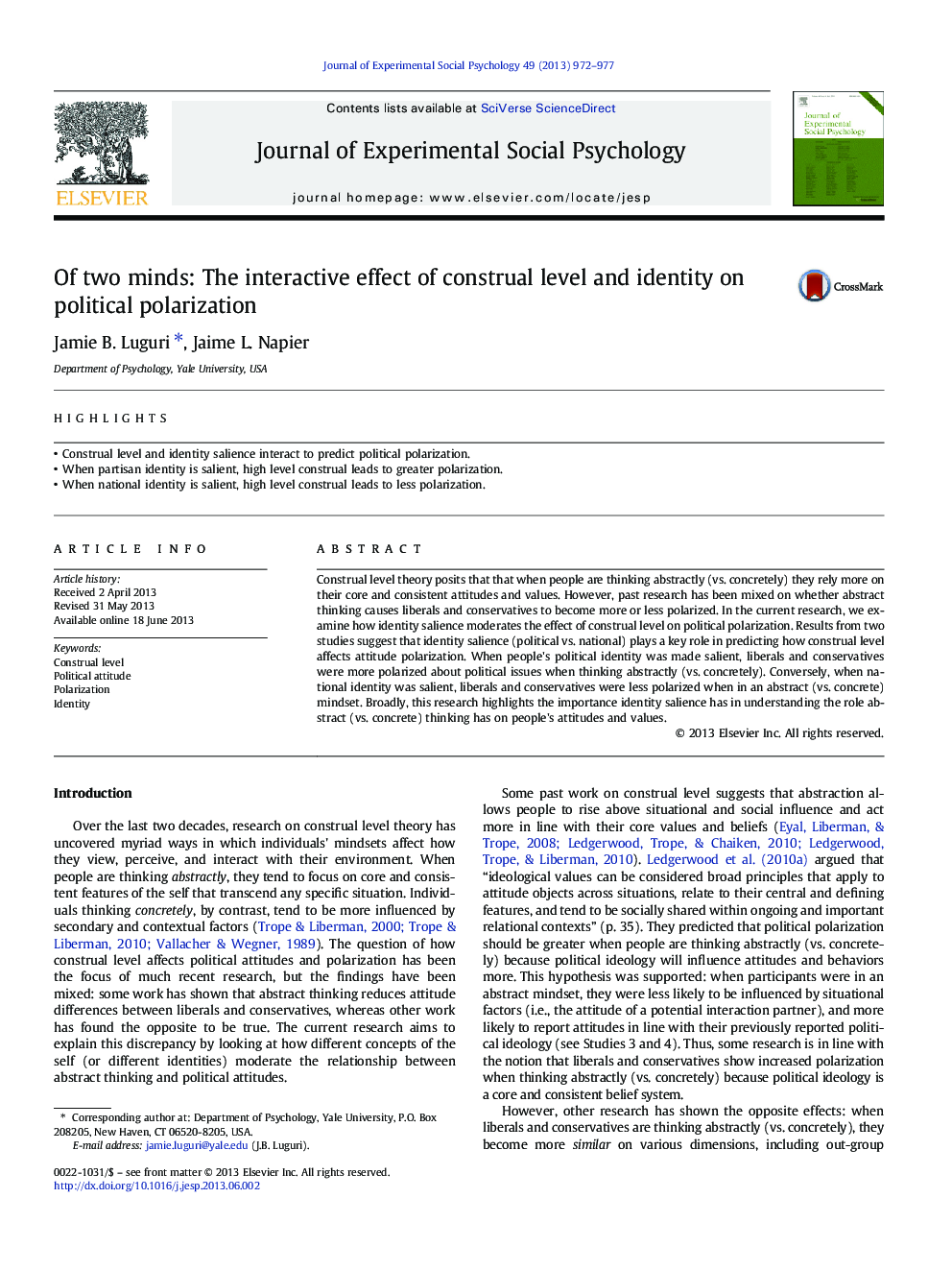| Article ID | Journal | Published Year | Pages | File Type |
|---|---|---|---|---|
| 10468553 | Journal of Experimental Social Psychology | 2013 | 6 Pages |
Abstract
Construal level theory posits that that when people are thinking abstractly (vs. concretely) they rely more on their core and consistent attitudes and values. However, past research has been mixed on whether abstract thinking causes liberals and conservatives to become more or less polarized. In the current research, we examine how identity salience moderates the effect of construal level on political polarization. Results from two studies suggest that identity salience (political vs. national) plays a key role in predicting how construal level affects attitude polarization. When people's political identity was made salient, liberals and conservatives were more polarized about political issues when thinking abstractly (vs. concretely). Conversely, when national identity was salient, liberals and conservatives were less polarized when in an abstract (vs. concrete) mindset. Broadly, this research highlights the importance identity salience has in understanding the role abstract (vs. concrete) thinking has on people's attitudes and values.
Related Topics
Life Sciences
Neuroscience
Behavioral Neuroscience
Authors
Jamie B. Luguri, Jaime L. Napier,
